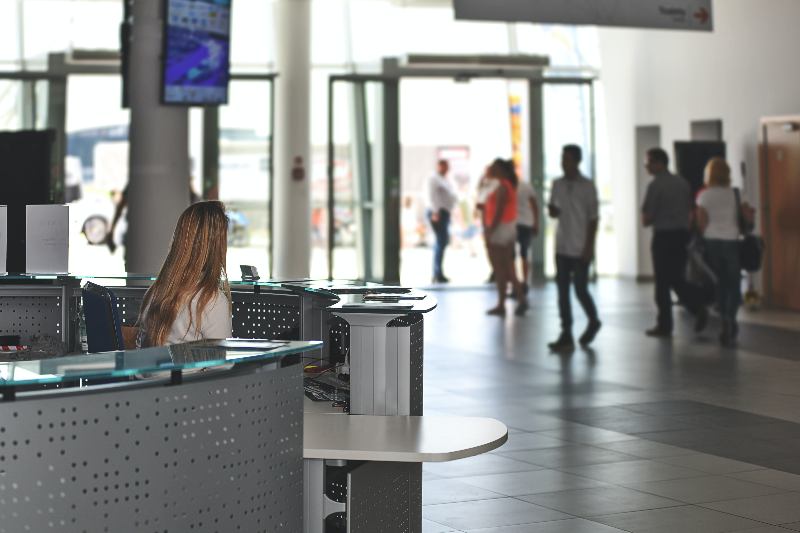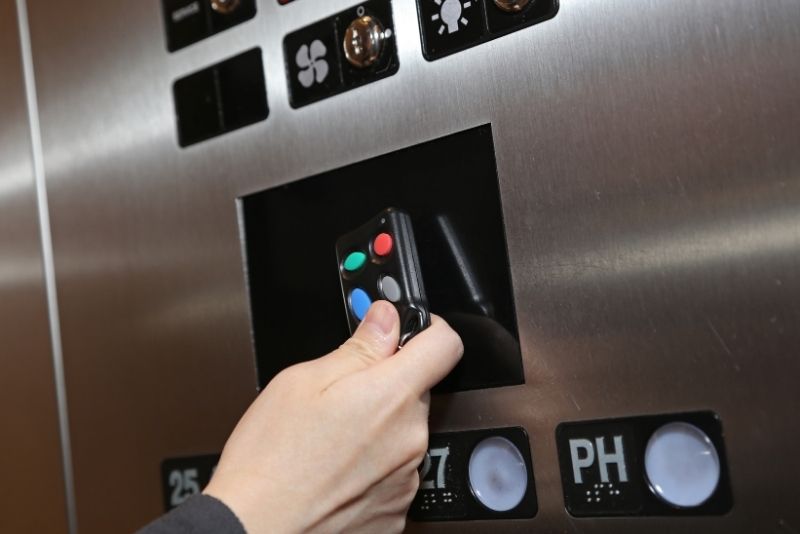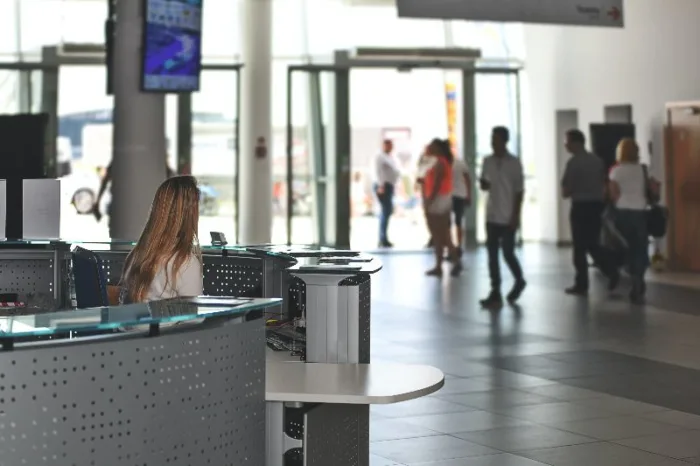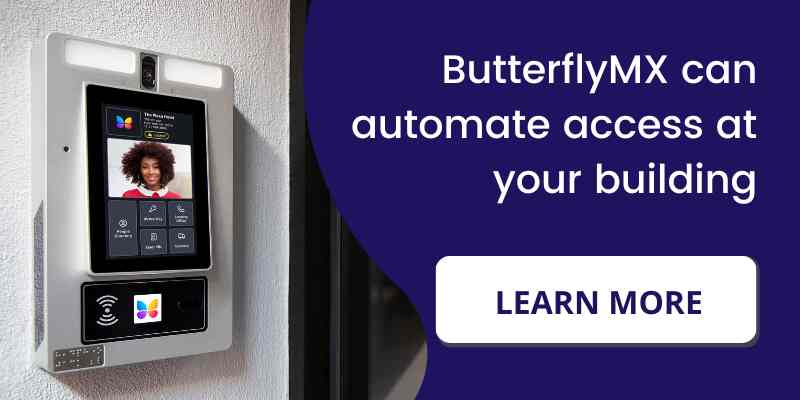Key takeaways
- The biggest benefits of cloud-based access control systems include off-site hosting centers, data protection, flexibility, saved cost, customization, safety, remote support, and integrations.
- A cloud-based access system is a security solution that empowers property managers to manage gates and doors via an internet-connected device.
- The highest-rated cloud-based access control system is ButterflyMX.

Access control systems are important proptech solutions that have helped owners and operators manage property access for decades. In recent years, cloud computing services have radically improved, and the benefits of a cloud-based access control system are unmatched.
Below, we talk about the best cloud-based access control system, plus the benefits of switching to a cloud-based access control system for your property.
In this post, discover:
- 10 benefits of cloud-based access control systems
- What is a cloud-based access control system?
- What is the best cloud-based access control system?
10 benefits of cloud-based access control systems
Here are the most empowering features of a cloud-based access system:
- Off-site hosting centers
- Data protection and backup
- Improved flexibility
- Cost- and time-effective
- Easily customizable
- Improved safety
- Remote support
- Better integrations
- Growth potential
- Ease of management
1. Off-site hosting centers
In a cloud-based system, the location where your data is hosted and stored never shuts down. Having a physical server in your building can be expensive, time-consuming, and requires ongoing maintenance. Maintenance can be as simple as restarting the system or as complicated as installing more memory to make it faster.
But with a cloud-based access control solution, you get the convenience of knowing that maintenance and upgrades are automatic. In other words, you’ll always be able to manage your system from any internet-connected device without worrying about it being down.
2. Data protection and backup
When you have a cloud-based access control system, the hosting center storing your software automatically updates and backs up. As a result, you’ll always have access to current data, and you’ll never have to worry about your in-house server dying.
In the event that your in-house server dies and you haven’t backed up your data, you might lose valuable data, such as the access permissions you’ve set up for your tenants or apartment residents.
Data centers are also equipped with redundancies. Redundancies ensure your data is backed up in multiple locations in case a file becomes corrupted and needs restoration.
Discover how access control works:
3. Improved flexibility
With cloud-based access, you can manage permissions and update the system remotely, all from one convenient platform.
Maybe your commercial property sees relatively high turnover, or perhaps your business is on a hiring spree with multiple new employees joining every week. Regardless, cloud-based access control gives you greater flexibility. Because of this, cloud-based systems are also great for businesses with multiple sites.
4. Cost- and time-effective
Installing and replacing servers and card readers, writing new software, and hiring someone to do it all is expensive. But with a cloud-based access control system, you pay one fee, which saves you a lot of time and money.
Better yet, if you choose a wireless access control system, you can also eliminate the cost and hassle of running wiring throughout your entire property.
5. Easily customizable
Cloud-based building access control systems are easily customizable for your property’s needs.
When adding or revoking permissions in a traditional system, you must physically scan a fob or rewire various pieces of hardware. In contrast, with cloud-based mobile access control, it’s as simple as logging into an online portal. In just a few clicks, you’ve changed the permissions for a new, current, or former tenant.

6. Improved safety
Having a cloud-based access control system in place gives you peace of mind. You can rest easy knowing you have the ability to grant access to certain people and revoke it for others anywhere, at any time. What’s more, your system is being monitored and maintained around the clock.
7. Remote support
With cloud-based access control, your software provider is just one call or click away to offer remote support. Whether you simply need help adjusting a user’s permissions or your entire system is failing, your provider can probably help without even visiting the building.
On-premises access control systems lack the robust and remote support offered by cloud-based systems. If your traditional access control system experiences an issue, chances are you’ll have to call a technician to come onsite and fix it.
8. Better integrations
Integrating your access control system with other technologies automates workflows and improves efficiency. Cloud-based applications integrate more seamlessly compared to traditional systems.
For example, you could integrate your cloud-based access control system with:
- A video intercom system.
- Your CRM or G-Suite directory.
- Slack, to enable automatic notifications when certain security events occur.
9. Growth potential
Cloud-based systems make it easier for companies to scale as they grow in size. This is especially true for companies that grow internationally or require remote access. The reason is that cloud-based access makes it easier to maintain, change, and add information without using more than one platform.
10. Ease of management
Owners and property managers find it easier to manage their property using a cloud-based access system. They can monitor visitors as they come and go using date-and-time-stamped photo audits, which they can access on the portal from anywhere.
What is a cloud-based access control system?
A cloud-based access control system is a security solution that empowers property managers to manage gates and doors via an internet-connected device.
Cloud-based access control systems host the software in the cloud instead of through a server at the property itself – unlike traditional systems.
What is the best access control system?
The highest-rated access control system is ButterflyMX. With ButterflyMX’s cloud-based access control system, property managers and tenants can enjoy seamless and convenient property access.
With ButterflyMX, you get:
- Visitor Passes. With Visitor Passes, everyone from package delivery personnel to guests can access the building at approved times. Residents and staff only need to create time-restricted Visitor Passes for visitors to use at the intercom.
- Management control from anywhere. With the ButterflyMX OS, you can easily control access and manage the system remotely from anywhere.
- Wireless connectivity. ButterflyMX’s wireless access control system offers seamless connectivity and eliminates the need for complex installations.
- Touchless entry. With the door release function, residents can easily grant access to guests without physical contact.
- A highly-rated mobile app. ButterflyMX users can manage the intercom system through the top-rated, easy-to-navigate mobile app. This empowers users to access entrances and gates using smart devices like smartphones.
- Access to multiple properties. The system is designed for different types of buildings, including apartments, salon suites, and amenity spaces. Lastly, ButterflyMX offers an end-to-end, multi-door design.







